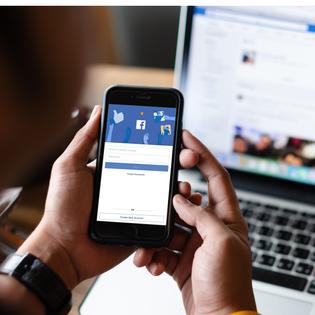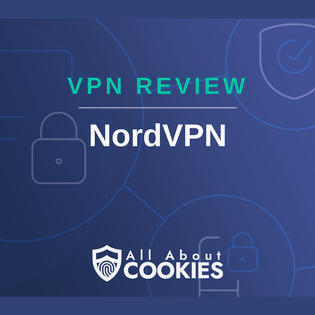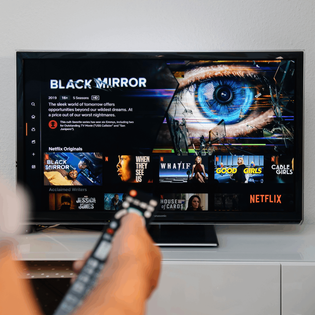Advertiser Disclosure
All About Cookies is an independent, advertising-supported website. Some of the offers that appear on this site are from third-party advertisers from which All About Cookies receives compensation. This compensation may impact how and where products appear on this site (including, for example, the order in which they appear).
All About Cookies does not include all financial or credit offers that might be available to consumers nor do we include all companies or all available products. Information is accurate as of the publishing date and has not been provided or endorsed by the advertiser.
Editorial Policy
The All About Cookies editorial team strives to provide accurate, in-depth information and reviews to help you, our reader, make online privacy decisions with confidence. Here's what you can expect from us:
- All About Cookies makes money when you click the links on our site to some of the products and offers that we mention. These partnerships do not influence our opinions or recommendations. Read more about how we make money.
- Partners are not able to review or request changes to our content except for compliance reasons.
- We aim to make sure everything on our site is up-to-date and accurate as of the publishing date, but we cannot guarantee we haven't missed something. It's your responsibility to double-check all information before making any decision. If you spot something that looks wrong, please let us know.
A virtual private network (VPN) can provide added security while you browse the internet and mask your IP address location to give you access to geo-restricted content. There are a variety of great VPN apps that offer additional security and anonymity to your internet experience, but are they legal? Is it legal to use a VPN to stream movies or other content?
The short answer: If you’re in the United States, it’s not illegal to use a VPN while you stream movies — so long as that movie was legally obtained.
Keep reading to learn more details about whether streaming with a VPN is legal.
Is it legal to download content with a VPN?
What happens if I get caught streaming with a VPN?
Why should I use a VPN for streaming?
What are the best VPNs for streaming?
Streaming VPNs FAQ
Bottom line
Is streaming with a VPN legal?
VPN legality depends on a few factors — one being where you are located. Several countries limit or completely ban the use of VPNs. In that case, using a VPN to stream a movie (or do anything else, for that matter) would be illegal.
Countries that ban the use of VPNs
- China
- North Korea
- Iraq
- Russia
- United Arab Emirates
Countries that limit the use of VPNs
- Iran
- Belarus
- Turkey
- Oman
- Uganda
If you’re in a country that doesn’t limit or ban the use of VPNs, then the question becomes about what you are using the VPN to do. In the United States and many other countries worldwide, using a VPN is not illegal. However, if you’re committing a crime while using a VPN, you’re still committing the crime, just while connected to a VPN.
Using a VPN for streaming is not illegal unless you’re illegally accessing the content you’re streaming.
If you want to cozy up in your hotel with a video rental but don’t trust shared Wi-Fi, it’s perfectly legal to launch your VPN before streaming. Or if you’re logging into a VPN to access geo-restricted content from streaming platforms like Netflix, Hulu, or Disney+, you’re not doing anything illegal. But it is illegal to download pirated movies and TV shows with or without a VPN.
VPNs are a great tool to keep you safer while using public Wi-Fi, handling sensitive information, or while accessing geo-restricted content. VPNs encrypt your internet activity so that ISPs or other prying eyes can’t track you. If you’re in a country that allows VPN usage, a VPN is completely legal as long as you’re not breaking any other laws.
Is it legal to use a VPN to access geo-blocked content?
Streaming services like Netflix have different libraries for different countries. These libraries differ based on copyright restrictions and the countries where Netflix purchased the rights for the content.
It isn’t illegal to use a VPN to change your location or circumvent geo-restrictions. However, by accessing geo-restricted content, you may be breaking the terms and service agreement of the streaming platform. This could result in restrictions from the streaming provider.
Why do streaming services block VPNs?
Streaming services may block VPNs so that they’re not breaking the copyright and distribution agreements that the streaming service made with the content creators. By blocking VPNs, the streaming service can limit their exposure to breach of contract liability.
Streaming services like Netflix blacklist IP addresses connected with a VPN service. This allows them to limit instances of bypassing geo-restricted content.
Is it legal to download content with a VPN?
Similar to other questions of legality, using a VPN doesn’t make illegal activity legal. So if you’re downloading content illegally, it doesn’t matter if you’re connected to a VPN or not. A VPN may help you hide your illegal activities, but it won’t help you if you’ve been caught breaking the law.
If downloading the content without a VPN would be legal, then it would also be legal to download it while connected to a VPN. For example, it’s legal to use the download feature offered by many streaming services or to download movies you purchased from legitimate retailers, like Amazon Prime Video or Google Play Movies.
What happens if I get caught streaming with a VPN?
Streaming platforms try to block VPN usage to help protect content and copyright agreements. If a streaming platform catches you using a VPN to stream content, they may restrict or remove your account. Streaming with a VPN may violate the terms and services of your account with the streaming platform.
As long as you’re not doing anything illegal when streaming with a VPN, the only repercussions may be from the streaming service. However, if you’re downloading illegal content or torrenting with a VPN, there may be more serious repercussions if you’re caught.
If your illegal activity is found and investigated, you may be charged with a crime. Even though many VPNs don’t keep logs, there may be other evidence that could hurt your case if using a VPN for illegal activities. As long as you’re not doing anything illegal while connected to a VPN, you should not have anything to worry about.
Why should I use a VPN for streaming?
There are several different reasons to use a VPN for streaming. The main reason is to access geo-restricted content. Streaming services like Netflix have a variety of different libraries based on your location. The Netflix library in the United States is very different from the Netflix library in Japan. You can use a VPN to mask your IP address location and give you access to other Netflix or streaming libraries. Connecting to a VPN server in a different country will allow you to see its streaming library and other titles.
Using a VPN isn’t only necessary for accessing content in other countries, you may also need to use a VPN to access content that is restricted in the United States, too — streaming services like MLB.TV restrict access to certain baseball games when the game is showing on local TV channels.
You may also want to use a VPN for streaming if your internet service provider (ISP) throttles or limits your bandwidth. Since a VPN encrypts your internet activity and changes your IP address, your ISP won’t be able to see your internet usage or throttle or limit your bandwidth.
What are the best VPNs for streaming?
We have a few recommendations if you’re looking for a VPN for streaming. Each of these VPNs offers a variety of server locations, and they won’t affect your internet speeds drastically. Each of these VPNs does come with a monthly or annual subscription cost, but from our testing, these VPNs are worth the price. You may be able to find a free VPN that offers streaming support, but free VPNs may come with security concerns.
NordVPN
-
High-quality VPN offering safety and speed
-
Loads of servers for multiple connection options
-
Works with popular streaming services, including Netflix
-
Too many confusing plans
NordVPN is a trustworthy, oft-recommended VPN solution that offers a few additional features that set it apart from the competition. With NordVPN, you can use a dedicated IP address, which can help circumvent any VPN blocks, and it also gives users built-in threat protection to help keep them safe while browsing the web.
You’ll get access to more than 5,000 servers with NordVPN. The standard plan will only cost you $3.19 a month with a 2-year commitment. NordVPN's other plans offer access to a password manager and cloud storage.
Get NordVPN | Read Our NordVPN Review
ExpressVPN
-
Premium VPN offering strong security and ultra-fast speeds
-
Strict no-logs policy with independent audit
-
In-house Lightway protocol for more speed and security
-
More expensive than NordVPN, Surfshark, and CyberGhost
ExpressVPN is another dependable solution for streaming and VPN users. ExpressVPN won’t drastically change your internet speeds, and you can access servers in 94 countries. ExpressVPN also includes a threat manager to help keep you safe from malicious sites or activities. ExpressVPN is more expensive than other solutions — you’ll pay $8.32 a month with a 1-year commitment.
Get ExpressVPN | Read Our ExpressVPN Review
Surfshark
-
VPN technology offering stability and speed
-
Unlimited simultaneous connections
-
Works with Netflix and other streaming services
-
Headquarters in Nine Eyes Alliance
Surfshark is the most affordable VPN on our list. You can snag SurfShark for $2.39 a month if you commit to a two-year contract. Surfshark has more than 3,200 servers, so you’ll have plenty of location options. With the more expensive SurfShark One plan, you also gain access to SurfShark’s antivirus, data alerts, and an encrypted browser. Surfshark One is $3.35 a month when paying for two years.
Get Surfshark | Read Our Surfshark Review
Streaming VPNs FAQ
Can I use a free VPN for streaming?
You can use a free VPN for streaming. However, free VPN services may not be as safe as other VPN solutions. Free VPNs may sell your information to third-party sites and jeopardize your personal information and internet activity. Free VPNs may also significantly slow down your internet connection, which is less than ideal for streaming.
Where can I stream free content legally?
You can stream free content legally from any legitimate streaming service that offers free access in your area. There are plenty of free streaming apps, such as Tubi and Freevee, that offer surprisingly expansive content catalogs. You’ll likely have to deal with a few ads, but you can’t beat free.
How do I stop Netflix from blocking my VPN?
While you can’t stop Netflix from blocking a VPN, you may be able to get around the blocks by using a dedicated IP address or using an IP address that the streaming platform hasn’t identified as being part of a VPN. If you run into a VPN block, you can try different server locations or pay for a dedicated IP address.
Bottom line
VPNs are a great way to encrypt your internet activity and access geo-restricted content, and using a VPN is legal in most countries. If you’re accessing content legally, you don’t have to worry about adding a VPN to the mix. If you’re streaming geo-restricted content, you may be violating the terms of service with the streaming provider, but it is not illegal.
If you’re looking for a VPN to help you access streaming content, we’d recommend NordVPN, ExpressVPN, or Surfshark as some of our favorites.
-
High-quality VPN offering safety and speed
-
Loads of servers for multiple connection options
-
Works with popular streaming services, including Netflix
-
Too many confusing plans







